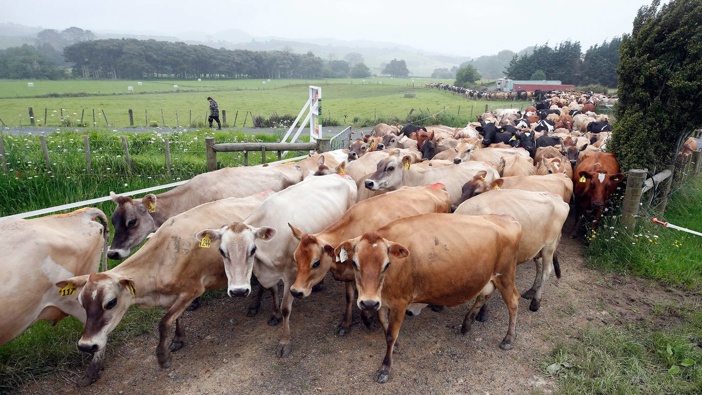This is one that has been discussed before and will no doubt be discussed again. Can pine forestry and livestock farming coexist in this country, or does one have to make way for the other?
For the last decade, there have been major concerns about productive farmland, not only being converted into subdivisions, but being converted into forests. These concerns were ramped up in recent times with the previous administration’s One Billion Trees project.
The area of land planted in trees is actually down from where it was two decades ago. New Zealand has about 12.1 million hectares in farmland. Another 1.7 million is in forestry, down from 2 million hectares in 2002, but reaching the 1 billion trees target by 2028 will require the planting of an estimated 43,000 hectares per year.
Of course there's a distinction to make between the different sorts of forestry – plantation forestry is different from carbon forestry.
Plantation trees will eventually be harvested. Carbon trees will never be harvested because the owners make enough through carbon credits alone. So what happens when a farmer sells their land for carbon farming or turns it over to plantation farming?
It really does take a village to maintain a farm, to keep a farm alive. Dairy farms, beef farms, sheep farms require people and those living in rural communities are worried that as the trees advance the sharemilkers jobs will go, shearing jobs will go, along with the shepherds and the truck drivers and the families. The vets will go, the mechanics, the retailers, the schools. They'll become ghost towns filled with trees.
Beef and Lamb NZ's sheep numbers fell 4.3% in the year to June. There was a 2.8 percent decrease in beef cattle numbers. And the lamb crop for spring 2025 is expected to fall nearly 5 percent.
Now part of that is farmers reacting to the low prices they get for their stock. Some parts of the country it's drought, but the primary driver, according to Beef and Lamb, is land use change, as a result of the conversion of livestock farms to forestry.
The Ministry for Primary Industries Todd McClay says the government is concerned in regards to excessive conversion of food-producing land to forest, however, he says it's also important that farmers retain choice over what they do with their land.
Imagine you've slogged your guts out all your life, you and your husband, you and your wife. You have worked every hour God sent from sunup to sundown. Finally, after 40 years, the kids don't want the farm. They have gone off to university or they've gone overseas and they're living their best lives. The kids don't want to get into the farm. What do you?
- Farmers forecasting 1 million fewer lambs for processing next season, job losses expected
- New research warns of significant transition of livestock farms into pine forestry unless policies are reconsidered
Imagine if the government said no, you cannot sell it to a nice fat cat overseas buyer who's going to put it all in trees because we need that land for you to produce food. No, you keep producing food until you collapse in the field. I mean, no government's going to do that.
Farmers have every right to do what they wish with their land. I mean it really is under threat, that kind of productive land is under threat as we heard the other day from alternative energy sources, from subdivisions, from plantation forestry, from carbon forestry.
It's like watching different armies advancing towards these poor farmers standing there going, bloody hell, what am I going to do? I'm not getting enough on the international market for my product. I love farming. I don't want to sit there and watch pine trees growing, that's not my life’s dream but what am I to do? What can we do? What makes it worth a farmer's while to keep their land in livestock?
For those of you who have stock, who have beef, who have lamb, who have dairy, do you sometimes look at the trees and think imagine, I wouldn't have to do a bloody thing.
I could sit on the porch, think my thoughts, never have to go out because it's raining and wet and cold, and the baby lambs are going to die unless they get some shelter. Never have to get up early again. Just acres and acres of pine trees. Do any farmers think bliss?
And when it comes to the rural communities, how are you going? How are you surviving? Do you see yourself as under threat or are you regaining lost ground?
Take your Radio, Podcasts and Music with you










